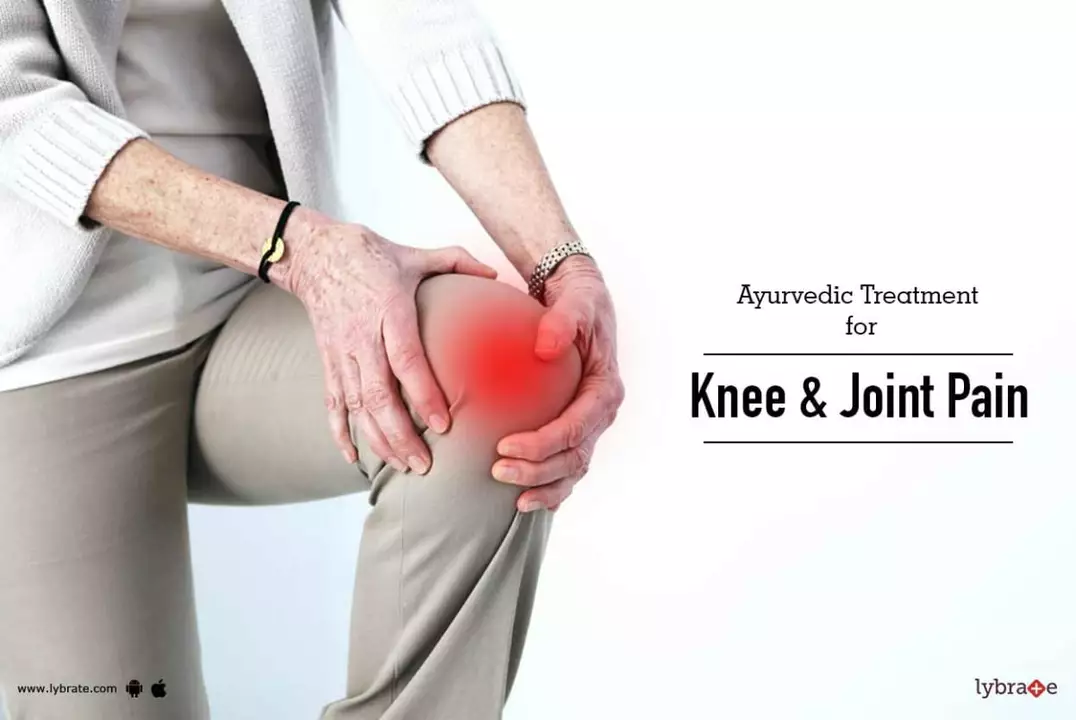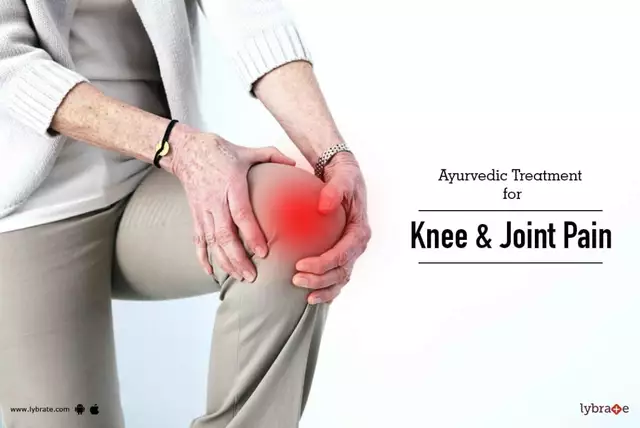How to Choose the Right Supplements for Bone Damage Prevention and Treatment

Understanding the Importance of Bone Health
As we age, our bone health becomes increasingly important. It's essential to take care of our bones to prevent damage and maintain a strong, healthy body. In this article, I'll be sharing my insights on how to choose the right supplements for bone damage prevention and treatment. These tips will help you make informed decisions about which supplements are best for your individual needs.
Identifying the Key Nutrients for Bone Health
There are several key nutrients that play a crucial role in maintaining healthy bones, and it's important to ensure that you're getting enough of these in your diet. Some of the most important nutrients for bone health include calcium, vitamin D, magnesium, and vitamin K. In this section, I'll discuss the role of each of these nutrients and how they contribute to overall bone health.
Calcium is the most abundant mineral in our bones and is essential for maintaining bone density. Vitamin D helps our bodies absorb calcium, so it's just as important to ensure that we're getting enough of this nutrient. Magnesium plays a role in bone formation, and vitamin K helps regulate calcium levels in the body. By ensuring that your diet is rich in these nutrients, you'll be taking a significant step towards protecting your bone health.
Choosing a High-Quality Calcium Supplement
Since calcium is such a vital nutrient for bone health, it's important to choose a high-quality calcium supplement. There are several different forms of calcium available, including calcium carbonate, calcium citrate, and calcium lactate. Each of these forms has its own advantages and disadvantages, so it's important to choose the one that's right for you.
Calcium carbonate is the most common form of calcium found in supplements and is also the least expensive. However, it can be harder to digest for some people, especially those with low stomach acid. Calcium citrate is more easily absorbed by the body, but it may not be as cost-effective. Calcium lactate is another option, though it's not as common and may be more expensive. Take some time to research and compare the different forms of calcium supplements to find the one that best suits your needs.
Don't Forget About Vitamin D
As I mentioned earlier, vitamin D is essential for the absorption of calcium in the body. Without enough vitamin D, your body won't be able to use the calcium you're taking in, even if you're consuming adequate amounts. To ensure that you're getting enough vitamin D, consider taking a supplement that contains both calcium and vitamin D, or taking a separate vitamin D supplement.
It's important to note that there are two forms of vitamin D: D2 and D3. Vitamin D3 is more easily absorbed by the body and is the preferred form for supplementation. Look for a supplement that contains vitamin D3 to ensure that you're getting the most effective form of the nutrient.
The Role of Magnesium in Bone Health
Magnesium is another important nutrient for bone health, as it plays a role in bone formation and mineralization. Some studies have shown that magnesium supplementation can help improve bone density, particularly in postmenopausal women. To ensure that you're getting enough magnesium, consider taking a supplement that contains both magnesium and calcium, or taking a separate magnesium supplement.
Like calcium, there are different forms of magnesium available in supplements, including magnesium oxide, magnesium citrate, and magnesium glycinate. Each form has its own advantages and disadvantages, so it's important to choose the one that's right for you. Research and compare the different forms of magnesium supplements to find the one that best suits your needs.
Adding Vitamin K to Your Supplement Regimen
Vitamin K plays a crucial role in regulating calcium levels in the body, which is important for maintaining healthy bones. There are two forms of vitamin K: K1 and K2. Vitamin K1 is found in leafy green vegetables, while vitamin K2 is found in fermented foods and animal products. It's important to ensure that you're getting enough of both forms of vitamin K in your diet.
If you're concerned that you're not getting enough vitamin K, consider adding a vitamin K supplement to your daily routine. Look for a supplement that contains both vitamin K1 and K2 to ensure that you're getting the full range of benefits from this important nutrient.
Consulting with a Healthcare Professional
Before starting any new supplement regimen, it's always a good idea to consult with a healthcare professional. They can help you determine whether you're getting enough of the key nutrients for bone health through your diet and whether supplementation is necessary. They can also help you choose the right supplements for your individual needs and ensure that they won't interact with any medications you're currently taking.
Don't be afraid to ask questions and discuss your concerns with your healthcare provider. They're there to help you make the best decisions for your health and wellbeing.
Maintaining a Balanced Diet and Lifestyle
While supplements can be a helpful addition to your bone health regimen, it's important not to rely solely on them for maintaining strong, healthy bones. A balanced diet that's rich in calcium, vitamin D, magnesium, and vitamin K is essential for overall bone health. Be sure to include plenty of fruits, vegetables, whole grains, and lean protein sources in your daily meals.
In addition to a healthy diet, maintaining an active lifestyle can also help support bone health. Weight-bearing exercises, such as walking, jogging, and resistance training, can help build and maintain bone density. Aim to engage in weight-bearing activities for at least 30 minutes each day to support your bone health and overall wellbeing.



Emily Jozefowicz
Oh great, another miracle pill for bones – just what we needed.
Franklin Romanowski
I totally get why people look for supplements when they hear about bone health. It can feel overwhelming with all the options out there. The article does a solid job outlining the basics, but remember that diet and movement matter just as much. If you’re considering a new supplement, it’s worth chatting with a professional to see what fits your lifestyle.
Brett Coombs
Everyone’s hyped about calcium, but have you ever wondered why the pharma giants push it so hard? Might be a hidden agenda.
John Hoffmann
While the sentiment is appreciated, there are a few grammatical oversights worth noting. For instance, "it's essential to take care of our bones" should be followed by a semicolon or a period, not a comma. Also, the phrase "as we age" could be set off with an em‑dash for emphasis. Small tweaks improve readability.
Shane matthews
I like the straightforward breakdown of calcium forms. Calcium citrate is indeed easier on the stomach, especially for folks with low acid production. Calcium carbonate can be cheap, but watch out for possible constipation. Overall, a balanced approach works best.
Rushikesh Mhetre
Exactly! 💪 Adding a little vitamin D to the mix can make a world of difference – it’s the dynamic duo for bone health! And don’t forget to stay active; weight‑bearing exercises amplify the benefits of those supplements. Keep it up, everyone!
Sharath Babu Srinivas
Great points on magnesium! 👍 Magnesium glycinate is gentle on the gut, while magnesium oxide can be a bit harsh. Mixing magnesium with calcium helps maintain a good calcium‑magnesium ratio. 🦴✨
Halid A.
Thank you for the clarification on magnesium forms. It’s helpful to know the absorption differences when recommending supplements to patients. Including both calcium and magnesium in a balanced regimen can indeed support bone remodeling.
Brandon Burt
When it comes to bone health, the supplement aisle can feel like a maze, but the fundamentals remain simple. Calcium is the building block, yet not all calcium sources are created equal; calcium carbonate needs stomach acid, while calcium citrate bypasses that hurdle. Vitamin D is the gatekeeper, allowing calcium to slip into bone tissue; without it, even the best calcium supplement is wasted. Magnesium, often overlooked, plays a structural role, stabilizing the crystalline lattice of hydroxyapatite. Vitamin K, especially K2, acts like a traffic cop, directing calcium to the right places and away from arteries. The interplay between these nutrients is a delicate dance, and the wrong partner can throw off the rhythm. For instance, excessive calcium without adequate magnesium may lead to mineral imbalances that affect muscle function. It’s also crucial to consider absorption enhancers like vitamin D3 versus the less effective D2. Lifestyle factors matter too – weight‑bearing exercise stimulates osteoblast activity, reinforcing the benefits of any supplement plan. Dietary sources remain the gold standard; dairy, leafy greens, and fermented foods provide bioavailable nutrients that supplements can only mimic. However, for those with dietary restrictions or malabsorption issues, well‑chosen supplements fill the gaps. Always check for third‑party testing to avoid contaminants that could undermine bone health. And remember, supplements are adjuncts, not substitutes for a balanced diet and active routine. Consulting a healthcare professional ensures you avoid interactions with medications like bisphosphonates. Finally, stay consistent; bone remodeling is a slow process, and benefits accrue over months, not days. In short, a thoughtful combination of calcium, vitamin D3, magnesium, and vitamin K2, paired with exercise and good nutrition, offers the best defense against bone loss.
Gloria Reyes Najera
Honestly, if you’re so clueless you need a whole article to figure out calcium, maybe just stick to milk and sunshine. No need to spend on overpriced pills when the basics work.
Gauri Omar
Listen up, folks! The battlefield for bone health isn’t just about popping pills – it’s a full‑on war of nutrients, workouts, and diet. If you think a single supplement will save you, you’re in for a rude awakening. The article scratches the surface, but the real strategy involves crushing those weight‑bearing moves, loading up on leafy greens, and never neglecting vitamin K2. Get it right, or you’ll be paying for a busted skeleton.
Willy garcia
Appreciate the passion, Gauri. Adding a bit of moderation helps – consistent resistance training and a balanced diet complement the supplement regimen nicely.
zaza oglu
Wow, such an insightful rundown! 🌟 It’s amazing how each nutrient plays its own starring role in the bone‑building saga. Keep the tips coming, everyone!
Vaibhav Sai
Thanks for the love! 🎉 Just remember, quality matters – look for chelated forms and third‑party verification for the best results.
Lindy Swanson
Honestly, all this supplement talk just feels like a marketing gimmick. Real bone health comes from good old sunshine and a decent diet.
Amit Kumar
Totally get where you’re coming from 😊 but a little boost can help, especially for folks with limited sunlight. Let’s keep the conversation friendly!
Crystal Heim
This article oversimplifies a complex topic.
Sruthi V Nair
While brevity has its merits, a deeper dive into the biochemical pathways would enhance understanding.